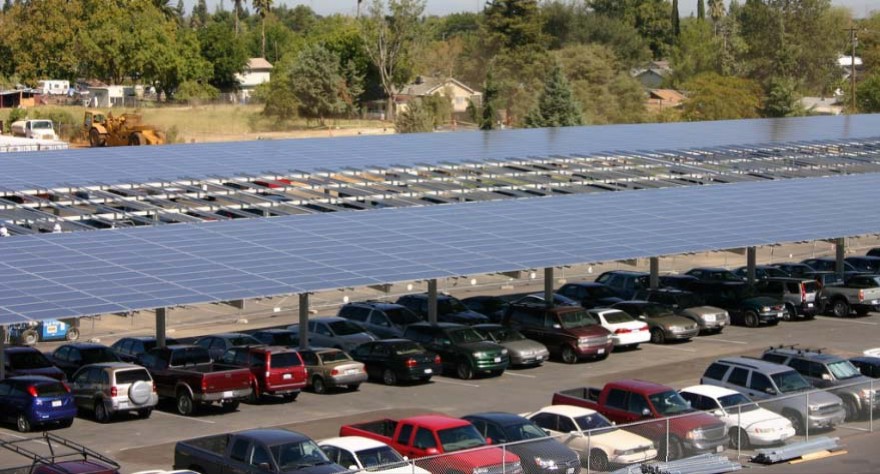School to tow cars during solar construction
All parking for CVHS students will be eliminated as of March 1 due to the construction of 3,000 solar panels over the staff, senior and junior parking lots.
The school intends to tow the cars of students parked on campus without warning. “We will tow on first offense,” said Assistant Principal Matt Steinecke, who is in charge of the logistics of the project. “There is not enough time or space to mess around with warnings.”
Towing expenses will run around $200 per vehicle, school officials estimate.
While student parking will be eliminated, $7 refunds will be available for all who bought $20 parking permits. “If they get a refund though, we will not reissue a permit should the lots reopen,” explained Steinecke.
The panels will provide for 75 percent of the school’s energy needs, and are expected to save the district $100,000 annually. They will last for 30 years.
The $6.6 million project was partially funded by a $1.4 million PG&E grant. The district received the grant on two conditions: the first being that construction would start before the summer of 2012, and the second being that the district would receive no solar energy kickbacks from the company.
Solar panel users who run up an energy surplus often have the option to sell their extra energy back to the power company. Under the conditions of the grant, CVHS will not have this option.
“PG&E usually buys energy from its clients who use solar panels,” said Steinecke. “Not so for us; in our case, it is purely a donation.”
The effects of the construction will be felt most directly by seniors, who hold most of the school’s parking permits. Nonetheless, students of all grade levels are nervous about the congestion that is sure to come.
“I don’t like the idea [of eliminating student parking], and I think it’s unfair,” said junior Janice Lu.
In the event that the panels are not fully installed by the end of the school year, the school will stop all construction for graduation week to reduce gridlock. Construction will be resumed after graduation.
Despite the inconvenience of installation, the financial and environmental benefits of transitioning to solar power cannot be ignored. The panels could even prove to have an educational aspect; in the coming years, Assistant Superintendent Mike Bush hopes to introduce the science of solar energy to the classroom.
“It’s like buying a gym membership,” Steinecke said. “You buy it up front, and then get to use it for an extended amount of time.”

